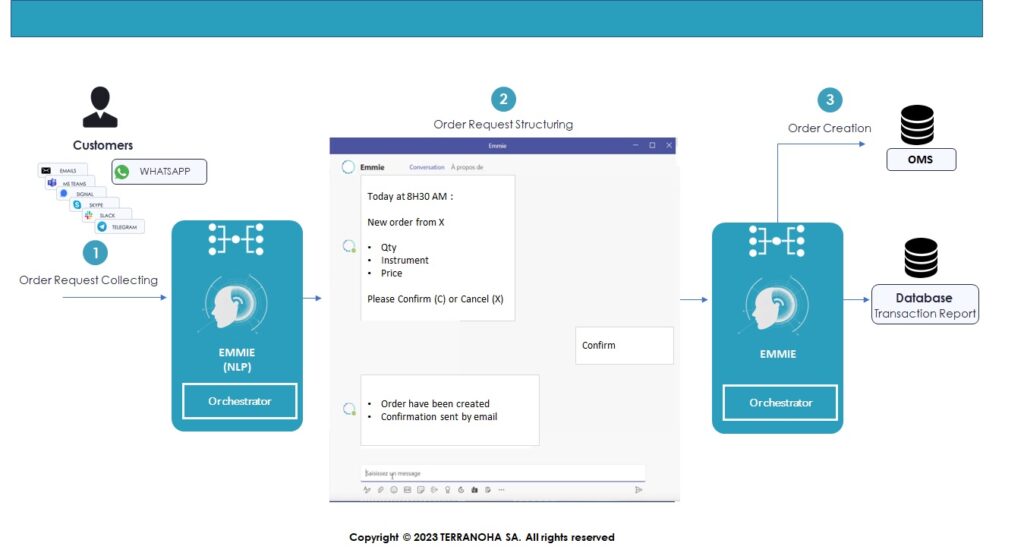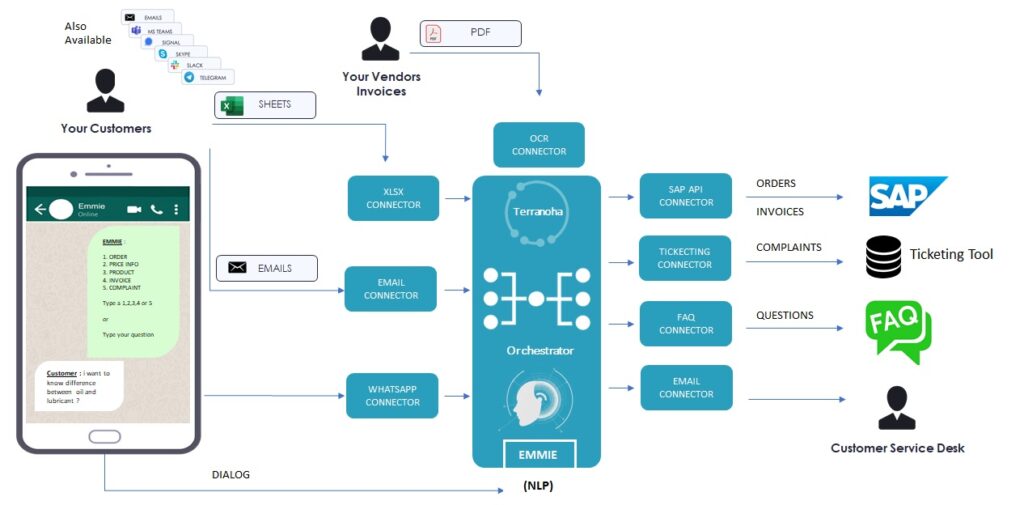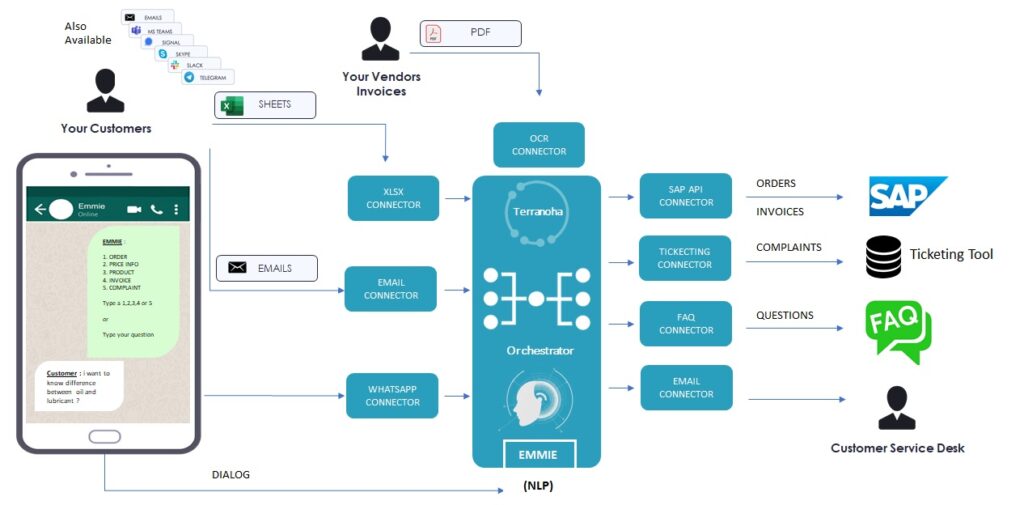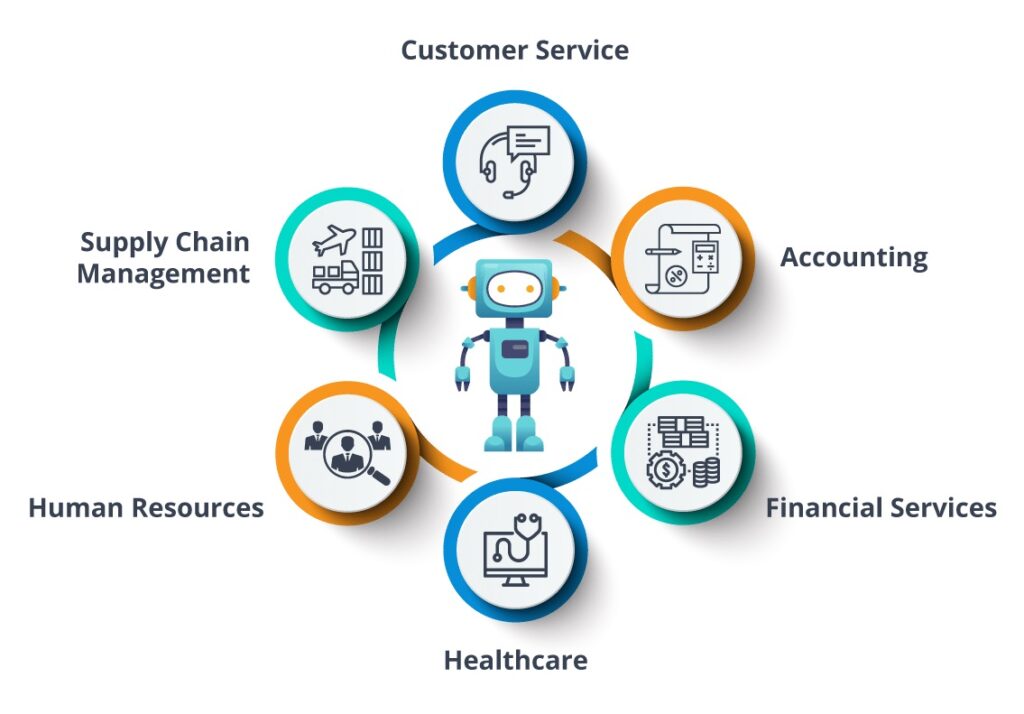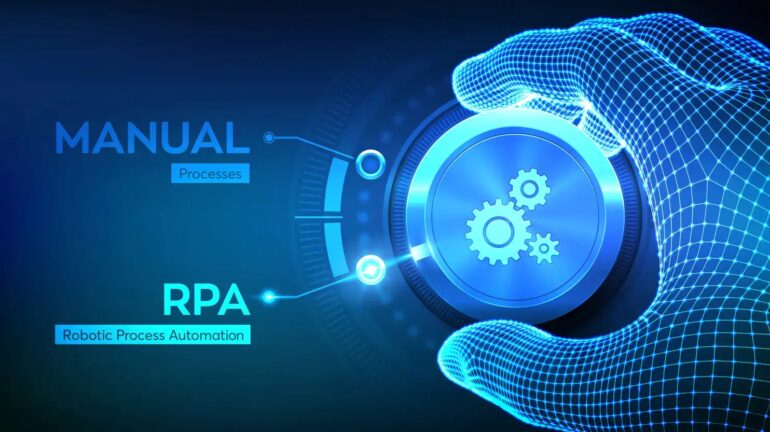
How FMCG Companies Leverage RPA for Success
The fast-moving consumer goods (FMCG) industry thrives on efficiency and agility. Every step, from production to sales, needs to be optimized to keep up with consumer demands and market fluctuations. In this dynamic environment, Robotic Process Automation (RPA) emerges as a game-changer.
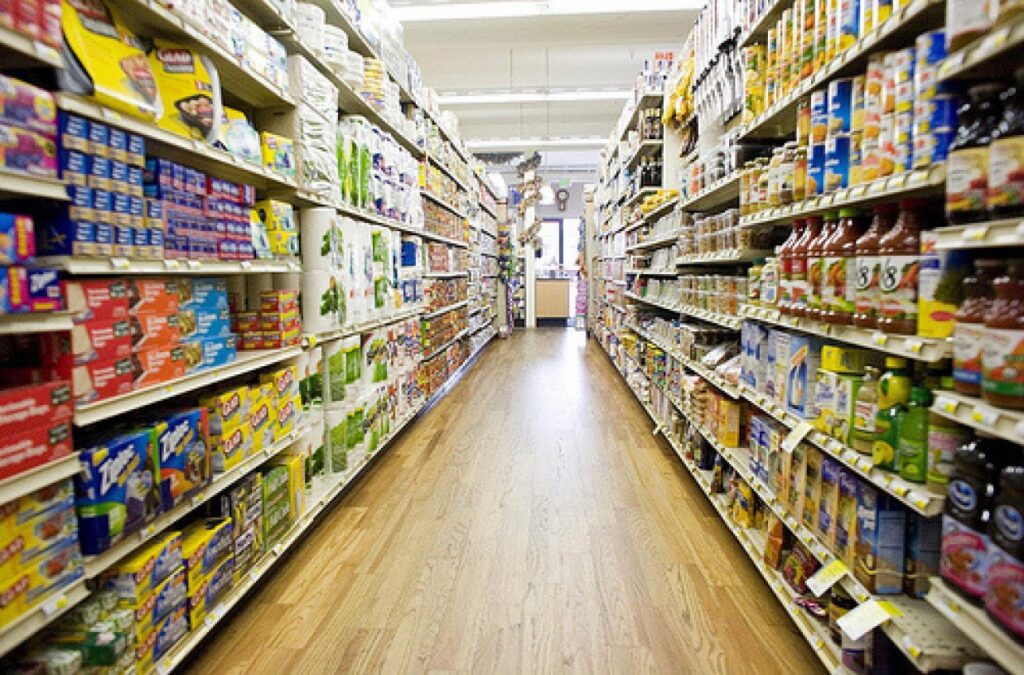
What is RPA and How Does it Benefit FMCG Companies?
RPA utilizes software robots (bots) to automate repetitive, rule-based tasks. These bots mimic human actions, such as data entry, form filling, and system navigation. By automating these processes, RPA delivers a range of benefits for FMCG companies:
Increased Efficiency:
Free up valuable human resources from mundane tasks, allowing them to focus on more strategic initiatives like product innovation and customer relationship management.
Enhanced Accuracy:
Eliminate human error from repetitive tasks, leading to cleaner data and fewer costly mistakes.
Improved Compliance:
Automate tasks related to regulatory adherence, ensuring consistent compliance with industry standards.
Reduced Costs:
Streamline processes, minimize labor costs associated with manual tasks, and optimize resource allocation.
Faster Cycle Times:
From order processing to inventory management, automation accelerates processes leading to quicker turnaround times and improved customer satisfaction.
“The first rule of any technology used in a business is that automation applied to an efficient operation will magnify the efficiency.”
Bill Gate, Microsoft
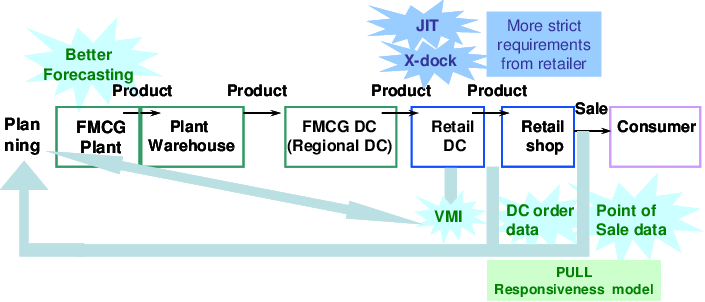
Unlocking Efficiency Across the FMCG Value Chain:
Now, let’s delve into specific use cases where RPA empowers FMCG companies:
Order Processing:
Automate tasks like order entry, invoice generation, shipping confirmation, and order status updates. This improves accuracy and streamlines communication with distributors and retailers.
Supply Chain Management:
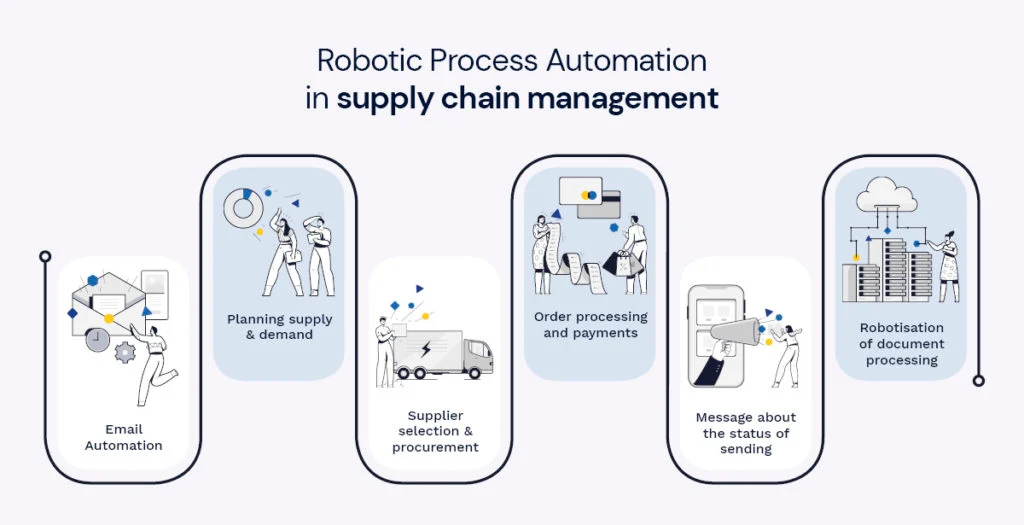
Financial Operations:
Customer Service:
Marketing and Sales:
Regulatory Compliance:
Implementing RPA: A Step-by-Step Guide
Identify Repetitive Tasks:
Analyze current processes and pinpoint tasks that are rule-based and highly repetitive.
Develop a Business Case:
Evaluate the potential benefits and costs associated with RPA implementation. This analysis helps justify the investment and demonstrate the expected return.
Choose the Right RPA Tool:
Implement and Integrate:
Monitor and Optimize:
Frequently Asked Questions (FAQs)
1. What does RPA mean for an FMCG company?
RPA in FMCG means using software robots. These robots automate repetitive, rule-based tasks. This frees up employees for more strategic work. It’s a digital workforce for your daily operations.
2. How are FMCG companies using RPA?
FMCG companies use RPA across many departments. They automate supply chain logistics. They streamline order processing and invoicing. The technology is also used for market data analysis. It can even handle customer service inquiries.
3. How does RPA improve the supply chain in the FMCG sector?
RPA can revolutionize the supply chain. It automates inventory management. It also predicts stock shortages. Bots can even track shipments. This ensures faster, more accurate delivery.
4. Is RPA a significant investment?
The initial cost of RPA is quickly offset. The technology offers a high return on investment (ROI). It reduces operational costs and boosts efficiency. The savings from human error alone are substantial.
5. Is RPA compatible with my existing systems?
Yes, RPA is designed for compatibility. The software bots work on top of your current systems. They don’t require complex integration. This means a faster, smoother implementation process.
The Path Forward: A Future of Automation
By embracing RPA, FMCG companies can significantly enhance their operational efficiency, reduce costs, and boost productivity. This allows them to focus on core competencies, adapt to changing market dynamics, and achieve sustainable growth in the competitive FMCG landscape. As RPA technology continues to evolve, we can expect even more innovative applications across the entire FMCG value chain, further revolutionizing how businesses operate.
Your Next Step: Spotting the Robot’s Job
We’ve explored how RPA is transforming the FMCG industry. From finance to the supply chain, robots are taking over the mundane. This is allowing companies to focus on innovation. This is about working smarter, not harder.
Think about your daily tasks. What’s the most time-consuming, repetitive job you or your team performs? That could be your first automation project.
Share your thoughts in the comments. Let’s imagine a more efficient future together!
#RPA, #FMCG, #Automation, #DigitalTransformation, #SupplyChain, #BusinessAutomation, #Efficiency, #ConsumerGoods, #RetailTech, #FMCGInnovation

